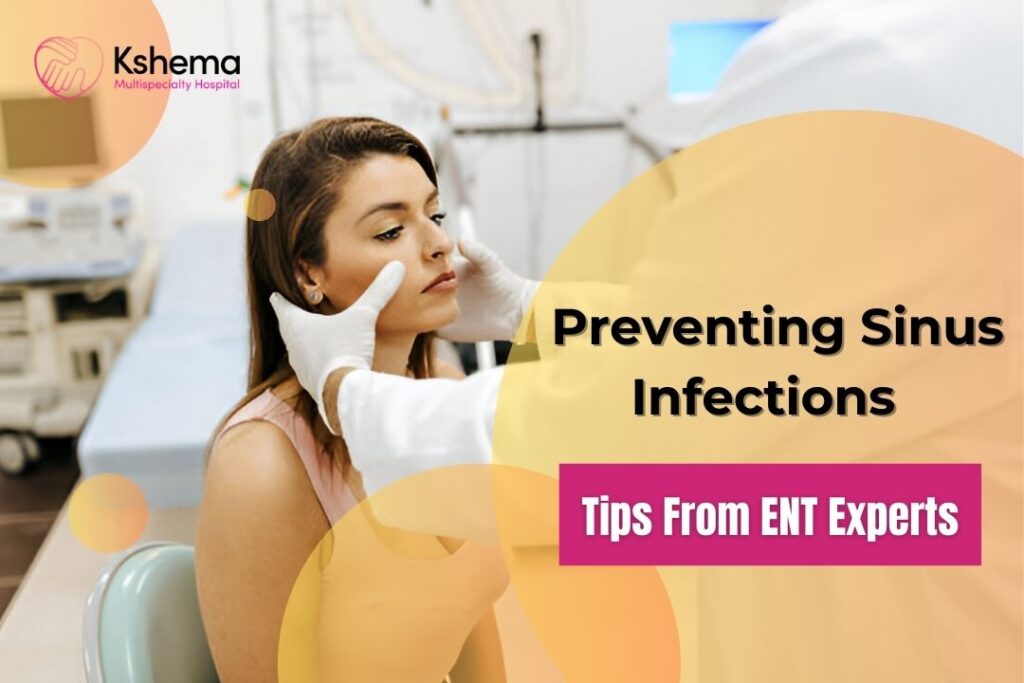Sinus infections, or sinusitis, occur when the nasal cavities become inflamed, leading to nasal congestion, facial pain, and headaches. Preventing sinus infections is essential for maintaining respiratory health and overall well-being.
Here Are Expert Tips To Help You Prevent Sinus Infections Effectively.
- Maintain Proper Hygiene Regular handwashing with soap and water reduces the risk of infections that can lead to sinusitis. Avoid touching your face, especially the nose and eyes, to prevent the transfer of germs.
- Stay Hydrated Drinking plenty of fluids keeps the mucous membranes moist, facilitating mucus drainage and reducing the likelihood of blockages that can cause sinus infections.
- Use a Humidifier Maintaining optimal humidity levels in your living environment prevents the nasal passages from drying out, which can contribute to sinus issues. Ensure regular cleaning of humidifiers to avoid mold and bacteria growth.
- Avoid Allergens and Irritants Exposure to allergens like pollen, dust, and pet dander can inflame the nasal passages, increasing the risk of sinus infections. Identify and minimize contact with known allergens, and consider using air purifiers to reduce indoor allergens.
- Practice Nasal Irrigation Using a saline nasal spray or rinse helps clear mucus and allergens from the nasal passages, promoting sinus health. Ensure the use of sterile water and clean devices to prevent contamination.
- Avoid Smoking and Secondhand Smoke Tobacco smoke irritates the nasal passages and impairs the natural defense mechanisms, making individuals more susceptible to sinus infections. Quitting smoking and avoiding secondhand smoke are crucial steps in preventing sinus infections.
- Manage Upper Respiratory Infections Promptly Colds and other upper respiratory infections can lead to sinusitis if not managed properly. Rest, stay hydrated, and consider over-the-counter remedies to alleviate symptoms and prevent progression to a sinus infection.
- Seek Medical Advice for Structural Issues Structural abnormalities like a deviated septum can impede sinus drainage, increasing the risk of infections. Consult an ENT specialist to evaluate and address any anatomical concerns that may contribute to recurrent sinusitis.
How to Treat Sinusitis
If preventive measures are insufficient and you develop sinusitis, consider the following treatment options:
- Hydration and Rest: Ensure adequate fluid intake and rest to support the body’s healing process.
- Nasal Decongestants: Over-the-counter decongestants can reduce nasal congestion but should be used as directed to avoid rebound congestion.
- Warm Compresses: Applying warm compresses to the face can alleviate pain and promote sinus drainage.
- Steam Inhalation: Inhaling steam helps moisten the nasal passages and loosen mucus.
- Medical Consultation: If symptoms persist beyond a week or worsen, seek medical attention. A healthcare provider may prescribe antibiotics for bacterial infections or recommend other treatments based on the underlying cause.
Implementing these preventive strategies can significantly reduce the risk of sinus infections and enhance your quality of life. For personalized advice and treatment options, consult the ENT specialists at Kshema Multispecialty Hospital; we provide comprehensive care for all ENT disorders.



